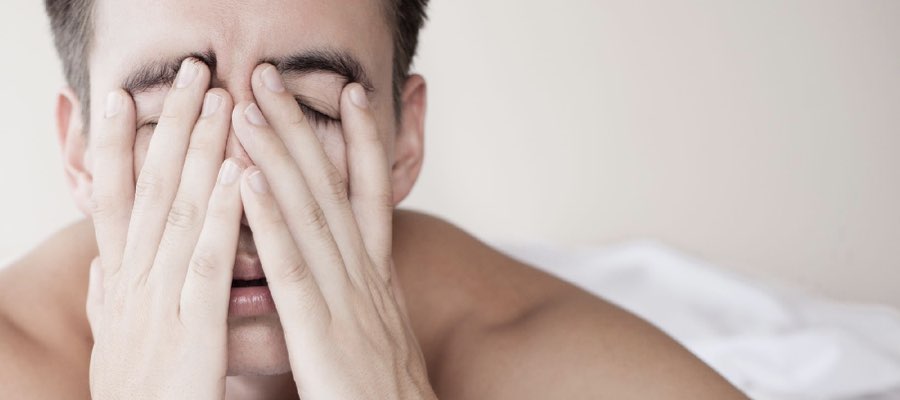
Sleep impacts your health, and lack of sleep contributes to many major health problems. It is also difficult to look, feel or perform at your best without the right amount of rest. For many Americans, getting a restful night of sleep is difficult or even impossible due to a condition called obstructive sleep apnea (OSA). Approximately 25 million Americans have sleep apnea which can cause them to stop breathing for periods of time ranging from a few seconds to a minute or more.
Common signs of sleep apnea include snoring, gasping or choking, waking with a sore throat, night sweats, frequent headaches upon waking or never feeling rested, even after a full night of sleep. These side effects come about because OSA causes the soft tissue in the throat to collapse and block the airway. Oxygen deficits result, and frequent waking throughout the night are common.
Treating sleep apnea is crucial. This condition has been linked to increased instances of high blood pressure, strokes, diabetes, reflux and other medical diagnoses. Treatment both benefits overall health and improves alertness and focus during waking hours.
Obstructive sleep apnea can only be diagnosed by a medical professional, and once diagnosed, there are several different approaches to treating it. Some individuals respond to one better than the other, and some find the greatest improvements when two or more therapies are used in collaboration with each other. Options for treating sleep apnea include:
- Using a CPAP machine while sleeping
- Oral appliance therapy such as a mouth guard which is worn during sleep
- Surgery
Research shows that oral appliance therapy is effective in treating OSA for many individuals. Oral appliances are individually fitted to the patient and designed to hold the lower jaw forward during sleep. This repositioning of the jaw moves the tongue forward and away from the back of the throat. Doing this reduces breathing obstructions, often leading to a more restful night of sleep.
With the use of oral appliance therapy, many individuals are able to avoid the costs, risks and inconveniences involved in using a cumbersome CPAP machine or undergoing surgery.
The Oso Marguerite Dental team in Mission Viejo has extensive experience in treating sleep apnea with oral appliance therapy. In partnership with patients and their physicians, we have successfully helped many to overcome this condition using customized oral appliances so they can enjoy better sleep and improved health.
If lack of sleep has you feeling restless or you have been diagnosed with obstructive sleep apnea, call our office and schedule a consultation to learn about the many benefits oral appliance therapy offers and discover if this is the right solution for you.
Frequently Asked Questions
-
I snore. Is that normal?
Many adults snore sometimes. Occasional or non-disruptive snoring is often normal. However, if your snoring wakes you through the night or is very loud and bothersome to your significant other, the cause may be sleep apnea. Regardless of the cause, it is important to have the condition evaluated by your doctor for a diagnosis and to discuss a treatment plan.
-
Is sleep apnea dangerous?
Yes, obstructive sleep apnea can be quite dangerous. It has been linked to high blood pressure, strokes, personality changes, impotence and depression. Many adults who experience untreated obstructive sleep apnea are also prone to feeling very tired during daytime hours. This might impact their ability to work, drive safely and function in society.
-
How do oral appliances help with sleep apnea?
A professionally fitted oral appliance helps to hold the jaw in the proper position so the airway remains open during sleeping hours. The appliance is similar to a mouth guard worn by athletes, and it helps to stabilize the tongue and lower jaw so air has more room to flow through, allowing you to sleep restfully at night.
-
What should I do if I am interested in exploring non-surgical obstructive sleep apnea remedies including mouth guards?
Oso Marguerite Dental would be happy to assist you in exploring non-surgical options that assist with sleep apnea. To schedule a consultation, simply call and speak with a friendly member of our front office staff.